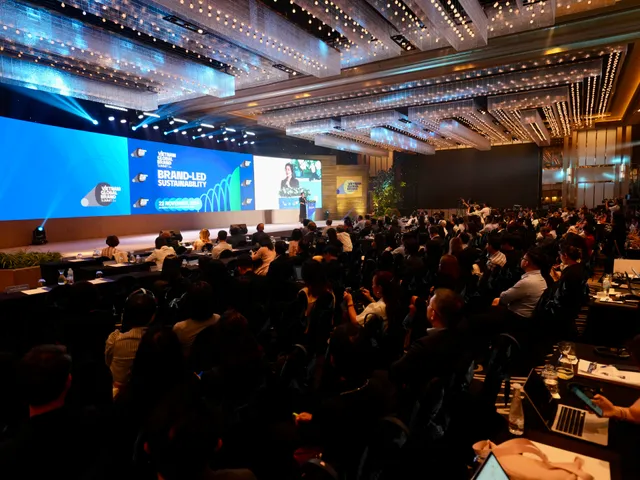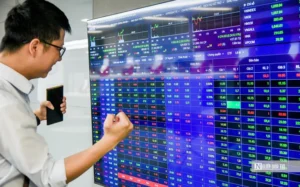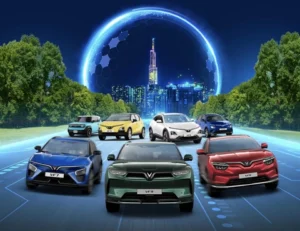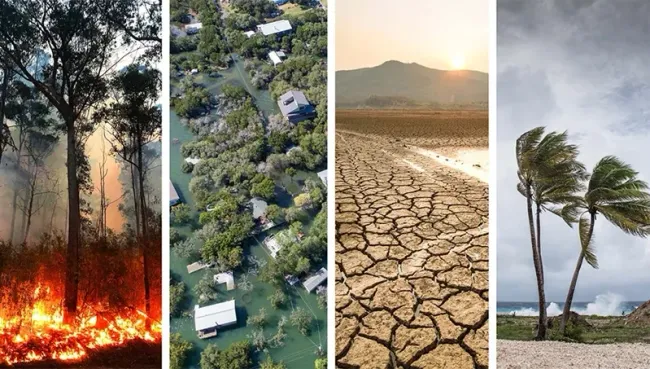According to statistics, more than 97% of Vietnam’s small and medium-sized enterprises are still struggling to find a way to balance costs and sustainable responsibility.
In the context of the world facing serious challenges of climate change and resource depletion, developing sustainable brands is not only a trend, but also an inevitable path for businesses to maintain their competitive position. However, are Vietnamese businesses seizing this opportunity to successfully transform?
97% of businesses still struggle with the concept of “sustainability”
Vietnam is facing great pressure. Climate change is no longer a distant theory but has become a reality with prolonged droughts and saltwater intrusion in the Mekong Delta. Rivers like the Mekong are drying up and farmers are feeling the pinch more than ever. At the same time, the middle class in Vietnam is growing rapidly, leading to increasing consumption demand. But does this development come with environmental and social responsibility?
At the “Brands Leading Sustainability” Forum recently held in Ho Chi Minh City, more than 300 business leaders and domestic and international experts discussed the importance of sustainable development in brand strategy. Sustainable development is understood not only in terms of the environment, but also includes responsibility to society and the community. Ms. Tran Tue Tri, co-founder of Vietnam Brand Purpose, said that sustainable development is not only a challenge but also a golden opportunity for Vietnamese businesses to affirm their position on the world map. She said that if implemented properly, sustainability will become an important competitive advantage, instead of just a cost burden.
But the reality is that small and medium-sized enterprises, which account for more than 97% of all Vietnamese enterprises, are still struggling to find a way to balance costs and sustainable responsibilities. A recent survey by Vietnam Brand Purpose showed that more than 30% of small businesses have difficulty accessing capital to apply clean technology. This is a big challenge when reforms in business support policies are not really effective and synchronous.
At the seminar, many experts also said that in recent times, some major Vietnamese brands have contributed to changing consumer awareness. For example, a dairy company in Vietnam has demonstrated that the circular economic model – from production to recycling and renewable energy use – not only helps protect the environment but also creates sustainable economic value. Their Green Farm project is not only a commercial product but also a strong message about social and environmental responsibility. However, not all businesses can afford to invest in such large projects.
Alan Jope, former CEO of Unilever, offers an interesting perspective. According to him, sustainability is not just about providing environmentally friendly products, but also about how brands change consumer behavior. Strong and creative communication campaigns are the key to creating real transformation. A notable example is Unilever’s introduction of products that save water, reduce plastic and reduce carbon emissions in its supply chain. However, Jope also warns that sustainability should not be just a marketing slogan. Today’s consumers demand not only transparency but also real action from businesses.
“Brands have the soft power to change consumer behavior. But if businesses do not act promptly, they will lose the opportunity to build trust from customers and the market,” said Mr. Alan Jope.
Notably, Vietnam has committed to achieving net zero emissions by 2050. However, to achieve this goal, all businesses – from large corporations to startups – need to join hands. Being slow to grasp the sustainability trend may cause many Vietnamese businesses to fall behind in the globalization game.

What is the solution?
Experts at the forum offered many solutions, not only for large enterprises, but also to help small and medium enterprises start their journey of sustainability. An important factor is to put consumers at the center of every development strategy and need the cooperation of the whole community.
From a social perspective, influential individuals such as Miss H’Hen Niê and rapper Double 2T are playing an important role in spreading sustainable values. H’Hen Niê co-founded the One Community, which focuses on connecting and inspiring young people about environmental responsibility. Meanwhile, Double 2T not only spreads messages through music but also directly participates in social activities, from planting trees to cleaning up trash. These are living examples showing that sustainability is not just the job of businesses or governments, but requires the cooperation of the whole community.
Karen Hamilton, former Vice President of Global Sustainability at Unilever, said that today’s consumers not only want to buy products, but also want to accompany the brand on its sustainability journey. To be successful, businesses need to link brand values to the values of customers and the communities in which they operate.
In addition, businesses need to focus on transparency and practical action. Mr. Nick Craig, President of Core Leadership Training Institute (USA), emphasized that: “Transparency is the key to building trust. Businesses cannot just talk about sustainability but must prove it with concrete actions.”
Experts also agree that digital transformation will play a key role in tracking and reporting sustainability progress. By using digital technology, businesses can make their entire supply chain transparent, from raw material sourcing to manufacturing and distribution.
In addition, public-private partnerships are also indispensable. The government needs to facilitate access to preferential loan packages for small businesses and encourage investment in clean technology. Such cooperation programs have been successfully implemented in many countries, and Vietnam can absolutely learn from them to create a sustainable ecosystem.
But for sustainability to truly come to life, businesses need more than slogans or individual actions. According to Ms. Tran Tue Tri, sustainable development is a golden opportunity for Vietnam to make its mark on the global brand map. But to seize this opportunity, businesses need to understand that sustainability is not an option, but a condition for survival.
What is needed most now is a sustainable ecosystem where the Government, businesses and the community work together. Experts also say that the Government needs to improve its business support policies, from providing preferential loan packages to tax reductions for businesses applying clean technology. Financial institutions should act as a bridge, helping businesses access international capital for sustainable projects. And most importantly, each citizen needs to change their consumption habits, from reducing plastic to using renewable energy.
Sustainability is a long journey, and Vietnam is only at the beginning of this journey. But with determination from all walks of life, the business community can absolutely build a greener future – not only for themselves but for future generations.
















